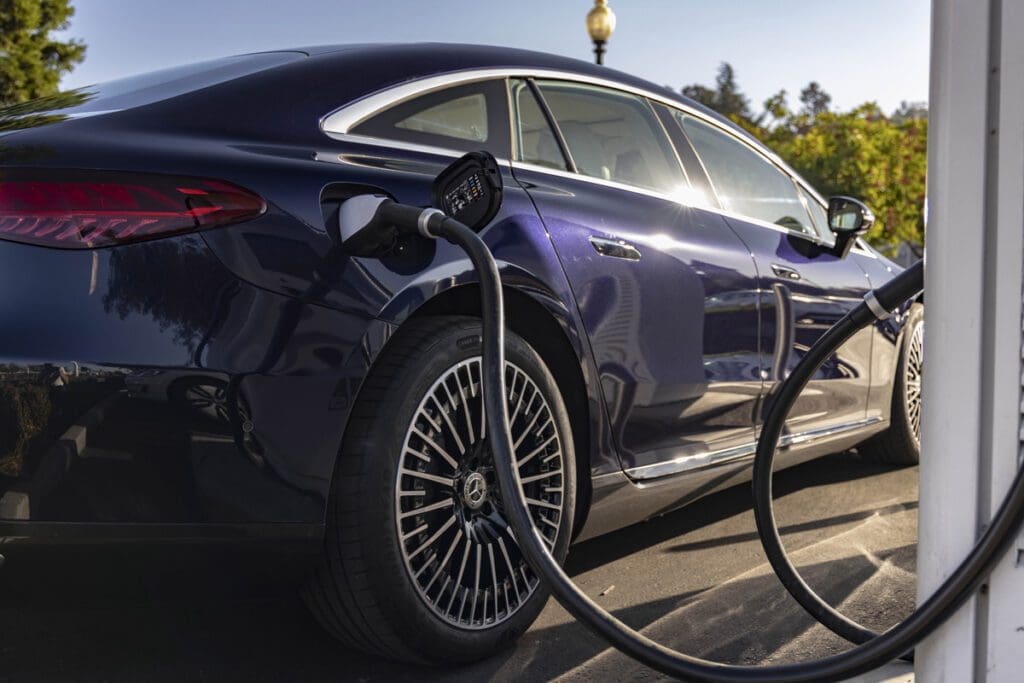“What’s in a reputation? That which we name a rose by some other title would odor as candy.” These phrases, spoken by Juliet in Shakespeare’s nice tragedy “Romeo and Juliet,” indicate that names are meaningless. However don’t inform a product supervisor that, particularly one within the automotive business. Automobile names observe tendencies in tradition and historical past. For instance, the mid-century Atomic Age gave us highly effective one-word American automobile nameplates that both hinted at house journey (Comet, Starfire, Galaxy, Mercury, Taurus) or glamor (Continental, Riviera, Monte Carlo, Eldorado, Monaco), whereas the Europeans remained extra prosaic, utilizing numbers that had extra of an inside which means than anything (2002, 240D, 500, 401, 320iS).
Nonetheless, as soon as American automakers within the midst of the 1973 Arab Oil Embargo needed to shrink their cars en masse, a bevy of names—from Sedan de Ville to sure, even the Eldorado—started to look extra just like the names of Wi-Fi hotspots. Seemingly in a single day, the modern aerodynamic look of American vehicles was changed by a supposedly extra European boxy form. Regardless of this, sure nameplates—examples embody the Chevy Suburban (1935), the Honda Accord (1976), the Volkswagen Beetle (1938), and the Mercedes S-Class (1972)—have loved nice endurance.
This considerably explains why Mercedes-Benz has introduced a big change to the nomenclature it makes use of for its electrical automobiles, and if there’s something Mercedes has been with nomenclature, it’s constantly inconsistent.
The Stuttgart-based automaker will not use the “EQ” prefix for its EVs. The usage of the prefix was in direct opposition to the nomenclature coverage that Mercedes promulgated 10 years in the past, when it started to make use of lowercase letters to point the kind of a car’s powerplant, resembling “d” for diesel and “e” for electrical.

The “EQ” prefix had grow to be unwieldy in recent times, because it created confusion with inside combustion engine automobiles that used single-letter or two-letter prefixes adopted by a category designation. For instance, for the E-Class, or E-Klasse in German, there was each an EQE that was an E-Class EV sedan and an EQE SUV that was clearly not a sedan.
The truth that Mercedes‘s second quarter US gross sales report indicated that mixed gross sales of the EQS sedan and EQS SUV have been down by 52% within the first half of 2024 in comparison with the identical interval in 2023 didn’t make the clumsy naming schema any extra beloved.
Therefore the information of one more Mercedes nomenclature change.
Mercedes CEO Ola Källenius advised weekly UK car journal Autocar that “there might be two S-Courses sooner or later—ICE and electrical.”
That answer neatly permits the Stuttgarters to get rid of the EQS title, which apparently didn’t take pleasure in the identical standing amongst luxurious automobile patrons that the S-Class did.
The 2 new S-Class automobiles, nonetheless, won’t be primarily based on the identical platform. The EV variant of the S-Class will use the forthcoming MB.EA Massive platform, whereas the ICE variant of the S-Class might be primarily based on a developed model of the present MRA structure.
It’s necessary to notice that, whereas Mercedes-Benz had initially projected that EV gross sales would account for greater than 20% of its 2,043,800 international gross sales in 2023, the electrics solely achieved an 11% market share at greatest, regardless of a 73% general enhance within the automaker’s complete EV gross sales from 2022.
Contemplating these gross sales figures, maybe the Stuttgarters ought to have used the time and power spent on transforming the nomenclature to strategize tips on how to supply lower-priced EVs that may beat the competitors from China.
The automaker had beforehand introduced a big change to its car nomenclature in 2014 in an effort to simplify its mannequin names. At the moment, Mercedes standardized on a system that constructed mannequin designations from combos of between one and three uppercase letters. Various kinds of energy have been to be indicated by a lowercase letter. Mercedes additionally retired the BlueTec model for diesels, reverting to utilizing an unadorned letter “D” as had been used prior to now, resembling on the 240D, albeit in lowercase. Hybrid automobiles have been to get an “h,” whereas electrical automobiles have been to obtain an “e” designation.
Previous to that, essentially the most important change was in 1993, when the letters “C” and “E” grew to become prefixes for the corporate’s compact and mid-sized sedans.
Supply: Autocar



